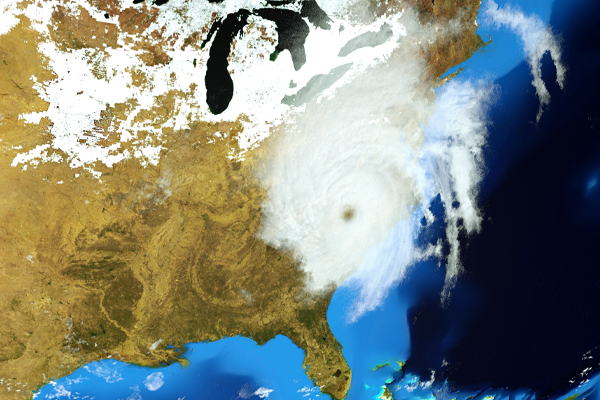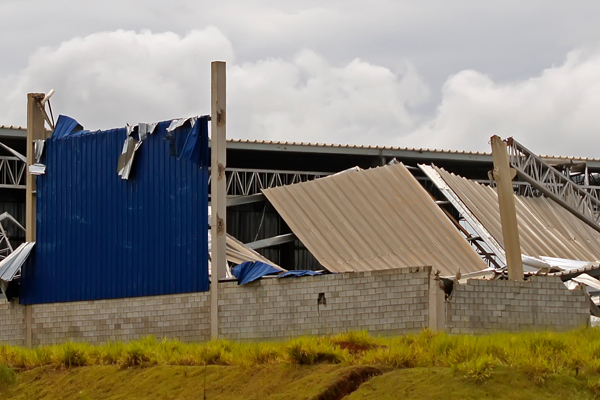
June 1st marks the beginning of hurricane season. Vulnerable areas of the United States, from the Gulf Coast to Maine, brace themselves for potential impact until November 30th, when the threat of destructive storms diminishes.
Hurricanes make landfall every year. That’s why effective preparedness measures are critical to mitigate damages and keep people safe in increase post-storm resilience. Building with concrete masonry units is one of the best ways to ensure safety and shelter in a hurricane-prone area and invest in your resilience.
The Cost of Being Unprepared During Hurricane Season
The Atlantic Basin experiences an average of 7.2 hurricanes per year with 3.2 of those storms reaching category 3 strengths or higher. The effects of these storms can be devasting. The National Oceanic and Atmospheric Administration estimates that the average cost of damages from a hurricane is approximately $21.6 billion per event, not to mention the hundreds of lives shattered or lost.
In the time following a hurricane, lives are significantly disrupted. Businesses and schools are forced to close, resulting in a loss of livelihoods and education within the community. Avoiding hurricanes is as impossible as controlling the weather. However, building resilient communities where damage and loss are minimized is possible. How? By building with concrete masonry.

Gain Resilience During Hurricane Season with Concrete Masonry
Building with concrete masonry increases personal, organizational, and community resilience in the face of severe weather by almost every measure. Proven to withstand extreme events, concrete masonry gives you the protection you need so that recovery is attainable. Here’s how:
- Wind Resistance: Concrete masonry structures are highly resistant to the strong winds associated with hurricanes. The dense and rigid nature of concrete blocks can withstand high wind pressures that might compromise less sturdy materials like wood or metal.
- Impact Resistance: Concrete masonry can better withstand impacts from flying debris, which is potentially fatal threat during hurricanes. This reduces the risk of structural damage and maintains the integrity of the building.
3. Moisture and Flooding Resistance
- Moisture Resistance: Water damage is a serious problem following a hurricane. Concrete masonry resists moisture penetration, reducing the risk of water damage, old, and mildew.
- Elevated Foundations: Constructing buildings with elevated foundations to mitigate flood risks and prevent water damage.
- Non-Combustible Material: Concrete masonry is inherently fire-resistant, reducing the risk of fire damage during and after hurricanes, particularly in areas prone to electrical fires from storm-related damage.
- Robust Construction: Concrete masonry is highly durable, offering long-term resistance to environmental wear and tear, including hurricanes, seismic activity, and other natural disasters.
- Low Maintenance: Structures built with concrete masonry require less maintenance and repair, contributing to their long-term resilience and cost-effectiveness.
- Modular Construction: The modular nature of CMUs facilitates easier and faster construction, repair, and modifications, enhancing the building’s adaptability and resilience.
7. Compliance with Building Codes and Standards
- Building Codes: Many coastal and hurricane-prone areas have stringent building codes that require structures to withstand high wind speeds and flying debris. Concrete masonry construction can help meet and exceed these codes, ensuring buildings are safer and more resilient.
8. Community and Urban Resilience
- Post-Disaster Functionality: building with concrete masonry ensures that buildings remain functional and habitable after a disaster, supporting rapid recovery and continuity of operations.
Build Better with Block
Building with concrete masonry is the best way to ensure resilience in the face of hurricane season. No one knows this better than the Southeast Concrete Masonry Association. We advocate the economic and safety advantages of concrete masonry and assist with design and construction codes.
